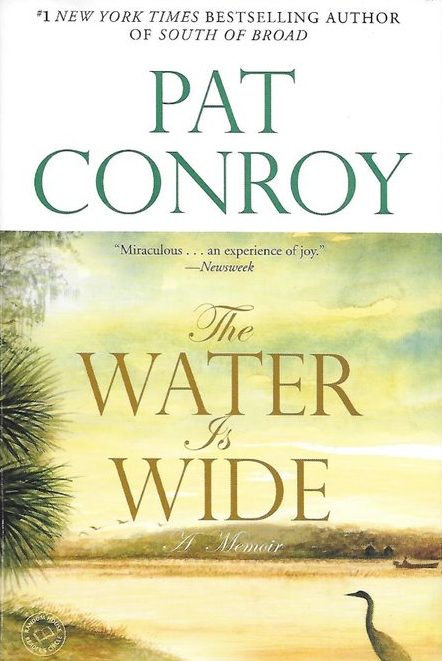The Water is Wide
Memoir reflects struggles of education in the Deep South
Photo courtesy thriftedbooks.com
Southern memoir illustrates the poignant connection between a teacher and his students.
December 10, 2020
Pat Conroy’s writing is the epitome of good Southern fiction. In his memoir The Water is Wide, he captures the natural aspects of the Deep South and illustrates social and educational struggles within that area.
I was first drawn to this book for its setting in Beaufort, South Carolina, my favorite place in the entire world. In his elegant language, Conroy translates Beaufort’s charm into words: “So we came to Beaufort, a town I grew to love with passion and without apology for its serenity, for its splendidly languid pace, and for its profound and infinite beauty.” This beautiful phrase achingly reflects my love for Beaufort as well, and I was elated to share this affection with someone else.
In his early teaching life, Conroy is assigned to teach in a hopeless community on a small island, one that most people have given up on in the past. The children lack basic knowledge, such as the alphabet, their location on a map or fundamental spelling. Conroy’s description of their appalling circumstances extracts sympathy from the reader and horror at the neglect of poor and underserved communities. Conroy, however, is determined to educate the children there, and he forms meaningful relationships with them as he does so.
I applaud Conroy for including his struggles in the memoir instead of omitting them. He could have easily highlighted his small successes with the children, but instead he shines light on the difficulty it took for him to instruct them, which is both entertaining at times and tragic.
Throughout the memoir, Conroy also includes his interactions with the elite whites of the education system and poor black community in which he teaches, providing a stark contrast that conveys the racial prejudice embedded in the South at this time.
I had the pleasure of visiting the schoolhouse in Conroy’s narrative a couple of summers ago. Observing the small rooms kids were forced into and the lack of access to electricity put my own educational experiences into perspective. However, I also got to see the beautiful aspects of the little island off of Beaufort, which is full of nature, culture, and to this day does not rely on electricity. To anyone who enjoys historical fiction, nonfiction, and beautiful imagery, I highly recommend this memoir.




